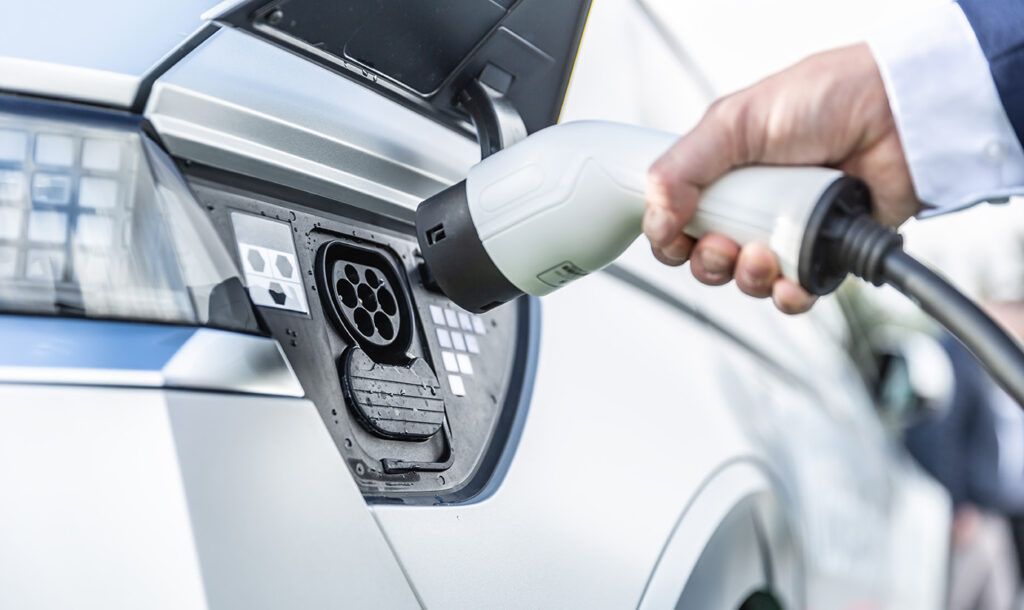Switching to an electric company car just got fairer. HMRC has finally split the mileage reimbursement rate for electric vehicle (EV) charging, giving different rates for charging at home and on the public network. For company car drivers – especially those using salary sacrifice schemes – this is a big win.
Let’s break down what’s changing, why it matters, and what you can do about it.
What Has HMRC Announced?
From 1 September 2025, HMRC is introducing two separate Advisory Electricity Rates (AERs):
- Home charging: 8p per mile
- Public charging: 14p per mile (initially announced as 12p, later corrected)
This replaces the old single rate of 7p per mile, which had been criticised for years because it didn’t reflect the true cost of charging, particularly on the public network.
Why the Split Matters
Fairer for Public Charging
Before this change, if you charged away from home – especially at pricier public chargers – you were often left out of pocket. For example:
- A Polestar 2 driver doing 6,000 business miles mostly on public charging could lose £800 a year.
- A Jaguar I-Pace driver covering 10,000 miles fully on public charging could lose more than £2,000 annually.
Now, with the higher 14p public charging rate, reimbursement better matches real-world costs.
Great News for Salary Sacrifice Drivers
Drivers using EV salary sacrifice schemes were hit hardest by the old flat rate. The new system removes a big financial barrier, making electric cars more attractive to employees and employers alike.
How the New Rates Are Worked Out
HMRC calculates AERs based on average electricity costs and vehicle efficiency:
Home charging (8p per mile):
- 27.04p per kWh electricity cost
- 3.59 miles per kWh efficiency
Public charging (14p per mile):
- 51p per kWh (slow/fast chargers under 50kW)
- Same efficiency rate applied
Note: Ultra-rapid chargers (over 150kW) average 76p per kWh, so if you use them, you may still face shortfalls. However, employers can set higher rates if they can show actual costs are higher.
What About Petrol, Diesel and LPG Cars?
HMRC also updated Advisory Fuel Rates (AFRs):
- Diesel: small increases (up 1p for engines up to 1,600cc and over 2,000cc).
- Petrol & LPG: unchanged.
- Hybrids: treated as petrol or diesel.
So the biggest news really is for electric company car drivers.
Actionable Tips for Drivers and Employers
- Check your mileage claims: Make sure your reimbursement rate reflects whether you charged at home or on the road.
- Talk to your employer: If you often use ultra-rapid chargers, ask about claiming higher rates.
- Think salary sacrifice: With Benefit-in-Kind tax at just 3% for EVs in 2025/26, plus fairer mileage rates, the savings stack up.
- Keep your EV maintained: Don’t forget that servicing and upkeep matter too.
Fleet Service GB: Supporting EV Drivers Nationwide
Whether you drive petrol, diesel, hybrid, or electric, Fleet Service GB’s Garage Network has you covered. With a nationwide network of trusted garages, they’re already geared up for EV maintenance and repairs.
So, if you’re running a fleet or driving a salary sacrifice EV, you’ve got professional support wherever you travel.
FAQs About EV Mileage Reimbursement
What is the new HMRC EV mileage rate?
From 1 September 2025, the Advisory Electricity Rate (AER) is 8p per mile for home charging and 14p per mile for public charging.
Why did HMRC split the EV mileage rate?
The old flat rate of 7p didn’t reflect the true cost of public charging. The split makes reimbursement fairer, especially for drivers who rely on public chargers.
Does the 14p per mile rate cover rapid charging?
Not fully. Ultra-rapid chargers cost more (around 76p per kWh). Employers can reimburse at higher rates if they have evidence of the actual cost.
How do the new rates affect salary sacrifice EV drivers?
They remove the financial penalty for using public chargers on business trips, making EV salary sacrifice schemes much more cost-effective.
FAQs About Fleet Service GB
Who is Fleet Service GB?
Fleet Service GB is a nationwide fleet management provider offering maintenance, compliance, and driver support services for businesses of all sizes.
Does Fleet Service GB support electric vehicles?
Yes. Their Garage Network is ready for EV servicing, diagnostics, and repairs across the UK.
Can Fleet Service GB help with mixed fleets?
Absolutely. They manage fleets with petrol, diesel, hybrid, and electric vehicles, providing tailored support for each.
Final Thoughts
HMRC’s decision to split the EV mileage reimbursement rate is a landmark moment for drivers and fleets. It makes business travel in electric cars fairer, removes financial barriers, and strengthens the case for salary sacrifice schemes.
Pair that with the backing of Fleet Service GB’s Garage Network, and UK businesses are better equipped than ever to make the switch to electric.



